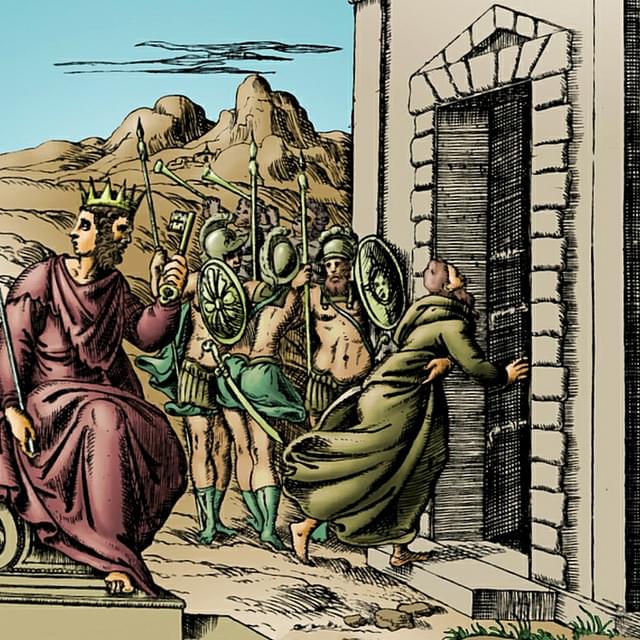If we extract the hydrogen from a litre of seawater, we get twice as much hydrogen in volume compared to the water.
Nanjing Tech researchers have invented a technology that overcomes the challenges that previous efforts faced with a novel solution.

At CES 2023, the CEO of Moderna discussed mRNA technology.
The Covid-19 pandemic continues to be a terrible plight on the world. But if there’s any silver lining in what has happened, the deadly worldwide plague has brought about advancements in medicine created to fight it that may have transformational impacts well past the pandemic.
In a conversation during CES 2023, one of the world’s eminent tech gatherings, Moderna CEO Stéphane Bancel discussed the potential to utilize mRNA technology at the basis of groundbreaking Covid vaccines, developed with unprecedented speed, to create personalized cancer treatments.
Yuuji/iStock.
In a conversation during CES 2023, one of the world’s eminent tech gatherings, Moderna CEO Stéphane Bancel discussed the potential to utilize mRNA technology at the basis of groundbreaking Covid vaccines, developed with unprecedented speed, to create personalized cancer treatments. The conversation “Personalized Medicine: The Future of Cancer Treatment is Not One-Size Fits All” was led by Stephen Klasko, executive in residence at General Catalyst and advisor at Stel Life.

According to a report from Bloomberg’s Mark Gurman, Apple is going to spend most of 2023 focusing on a brand new device — a mixed-reality headset that has been a work in progress for several years.
The new device could look like a pair of ski goggles, based on an earlier report from The Information. It will feature several cameras so that the device can track your movements in real time and see what’s happening in the real world.
Over the past few years, Apple CEO Tim Cook has stated several times that augmented reality is a promising technology. “I think the [AR] promise is even greater in the future. So it’s a critically important part of Apple’s future,” Cook told Kara Swisher back in 2021.


This type of new recycled toilet paper that now amazon offers can stop the need for new tree pulp reducing the amount of trees cut down by 4.9 million trees if everyone used them. I also like hemp toilet paper as it doesn’t need to use trees.
Buy Seventh Generation Toilet Paper White Bathroom Tissue 2-ply 100% Recycled Paper without Chlorine Bleach 24 count, Pack of 2 on Amazon.com ✓ FREE SHIPPING on qualified orders.

Year 2022 Basically this can make the world of human waste disposal literally a trillion dollar industry this essentially like the myth of the gold egg from a magic goose realized. This could then make hardware for future research and so much more to society.
The artist is turning his entire archive into single-carat, brilliant-cut diamonds.
Kate Brown, January 4, 2022.



Jesus Christ of sharks has risen 🙏
A rare event has taken place in the Cala Gonone Aquarium in Sardinia, Italy. A smooth-hound shark gave birth to a baby shark without any male interference in the tank she has been living in for the past ten years with only another smooth-hound female and no males, reports Agenzia Italia. This could prove to be the first and only parthenogenesis example in this specific species of shark, and hence, t he newborn female shark is named Ispera, which means Hope in Sardinian.
While other sharks and rays, including the bonnethead, the blacktip shark, and the zebra shark have previously been observed doing parthenogenesis, smooth-hound sharks, scientifically known as Mustelus mustelus, have never been, as far as scientists know. If confirmed, this event could be a scientific discovery of smooth-hounds’ using parthenogenesis.

Packing battery tech nobody uses in consumer devices and a half-horsepower motor, BlenderCap is one of the most ludicrously over-engineered products we’ve seen in a hot minute. At CES in Las Vegas, we took a closer look at talked with the team behind the product to find out more.
Let’s start with, er, why do we need a portable blender in the first place?
“We originally invented this just for personal use for making smoothies after the gym. I was going to CrossFit, and I wanted a protein shake after that. I made myself a shake, and it just got sort of melted and lumpy after you have worked out for an hour or two,” says Dakota Adams, co-founder at the company. “Then the idea came along to put a blender onto these Hydroflask-style bottles. Matthew [Moore] and I became friends and began working on how to pack that technology into a tiny little cap.”